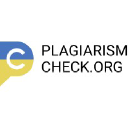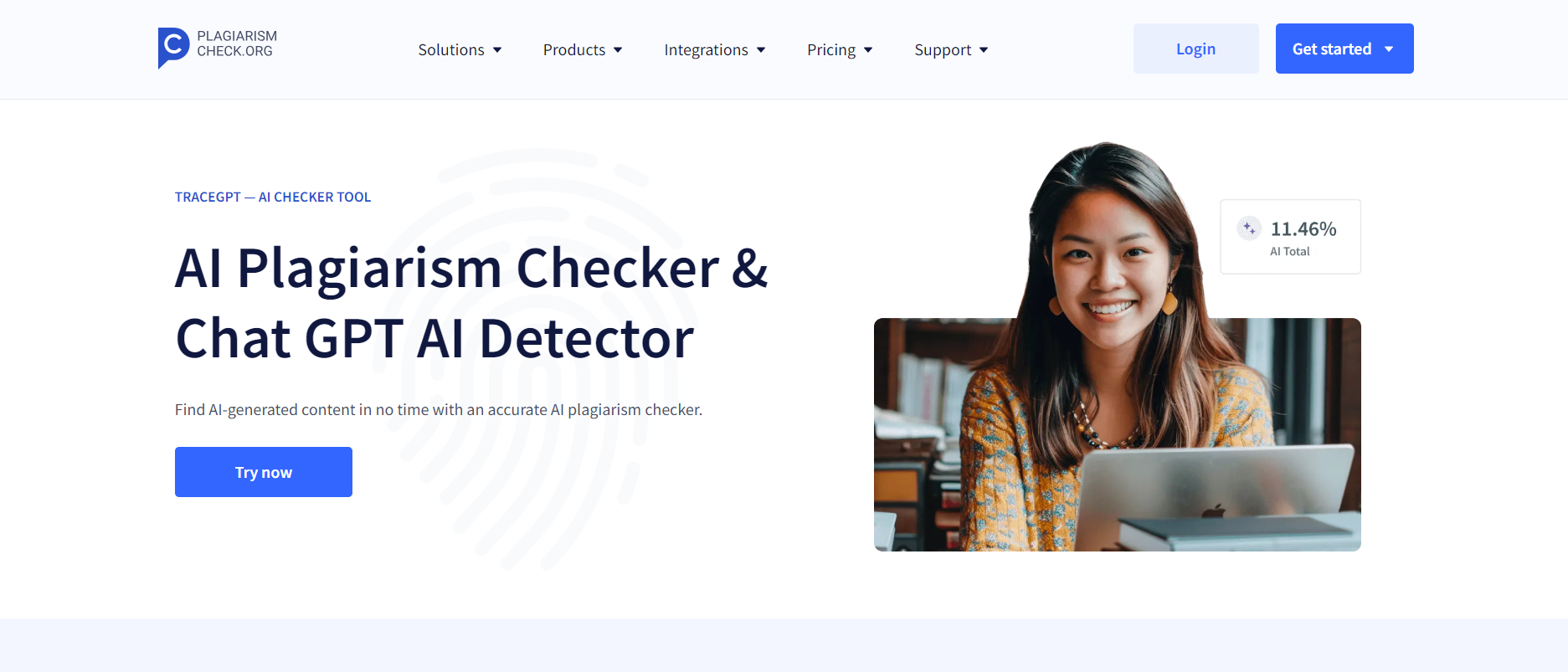Overview
TraceGPT is an advanced AI tool designed to tackle the growing challenge of AI-generated content in various sectors, including academia, SEO, and recruitment. This AI plagiarism checker and Chat GPT AI detector efficiently analyzes text to determine if it is machine-generated, helping maintain the originality and integrity of content across fields. By scrutinizing various parameters, TraceGPT ensures high accuracy in detection, providing users with detailed, downloadable reports while maintaining strict confidentiality.
The tool is particularly vital in educational settings, where it upholds academic integrity by identifying AI-written essays and papers, ensuring that students' work is genuinely their own. It also plays a crucial role in SEO practices by detecting AI-generated content that could affect website credibility and in recruitment processes to verify the authenticity of documents and texts.
TraceGPT includes a FAQ section that addresses common inquiries about the functionality and necessity of AI plagiarism checkers, the process of detecting AI-generated texts, and the broader impact of AI on educational honesty. The tool concludes with an invitation for users to explore its capabilities through a demo, highlighting its effectiveness in promoting fairness and honesty in content creation and evaluation. TraceGPT is an essential tool for anyone seeking to ensure content authenticity in an age increasingly dominated by AI-generated texts.
Key features
- AI content detection: TraceGPT analyzes large language models to accurately identify AI-generated text, ensuring content integrity.
- Downloadable reports: Users can obtain detailed reports of the analysis, which include evidence of AI involvement, with strict confidentiality.
- Multi-field application: Ideal for academia, SEO, and recruitment, TraceGPT helps maintain originality and honesty across various professional fields.
- Academic integrity emphasis: The tool underscores the importance of honesty in educational settings by detecting AI-written essays and papers.
- FAQ and support: Includes a comprehensive FAQ section that addresses common concerns and provides guidance on using AI plagiarism tools effectively.
- Demo availability: Offers potential users the opportunity to explore its features through a demo, highlighting its effectiveness in detecting AI content.
 Pros
Pros
- Real-time analysis: TraceGPT provides instant results, allowing users to quickly determine if content is AI-generated, enhancing workflow efficiency.
- User-friendly interface: The platform is designed for ease of use, ensuring that even individuals with minimal technical skills can navigate it effectively.
- Continuous updates: TraceGPT regularly updates its algorithms to keep pace with evolving AI technologies, ensuring high accuracy in detection.
- Scalable solutions: Suitable for both individual users and large organizations, TraceGPT can handle varying volumes of content checks seamlessly.
- Privacy assurance: TraceGPT prioritizes user data privacy, ensuring that all documents and reports are processed securely.
 Cons
Cons
- Resource intensive: TraceGPT requires significant computational power to analyze and detect AI-generated content, which may limit its accessibility for some users.
- False positives: Despite its accuracy, TraceGPT may occasionally misidentify human-written content as AI-generated, leading to potential misunderstandings.
- Complex interface: Users with limited technical expertise may find the interface and detailed reports challenging to navigate and interpret.
- Update dependency: TraceGPT needs regular updates to keep up with evolving AI writing models, which could affect its long-term reliability without consistent maintenance.
- Limited language support: Currently, TraceGPT primarily supports English, which may not be suitable for detecting AI-generated content in other languages.
















